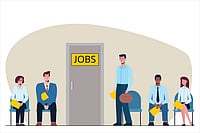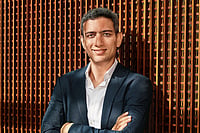Sridhar Vembu, founder and CEO of Zoho, has called for active government intervention in facilitating competition among tech companies in India. “If Zoho wants to monopolise or acquire all the competition, the government maybe should not allow us,” he said.
The software company founder acknowledged that concentration of wealth among technology companies is turning into a significant political economy problem across the world. “In the US, the antitrust has woken up. Should Google have been allowed to acquire YouTube? Should Facebook [Meta] have been allowed to acquire WhatsApp? These are the questions that the US is asking now,” Vembu said.
“In India, we may not have to allow such mergers and acquisitions,” he added. Vembu was speaking at Synapse, a technology conclave held in Delhi NCR over the weekend. To address the issue of competition among digital businesses in India, the Union government is presently considering the need for a new competition law.
In February 2023, a Committee for Digital Competition Law (CDCL) was set up by the Ministry of Corporate Affairs (MCA) to look into this matter. Although the committee’s tenure was extended multiple times since May 2023, it is yet to submit its final report to the government.
The draft bill on digital competition is expected to recommend ex-ante regulations on ten anti-competitive practices among digital businesses, including on mergers and acquisitions. Meanwhile, in the US, tech giants Google, Meta and Amazon are facing various antitrust lawsuits as the companies have repeatedly shown monopolistic tendencies.
Speaking at the conclave, Vembu also weighed in on the impact that artificial intelligence (AI) will have on the Indian workforce. “Even if we have tech that produces everything, the question is who derives the income? Who has access?” the billionaire tech founder asked.
While technological developments such as AI further automate the means of production, its effect on employment generation has become a matter of grave debate all over the world. Vembu added, “Our problem is that we have decoupled the production technology which is becoming AI-driven from the distributional question which is: how will the consumer get the income to consume? This, to me, is not merely a technological question but a political economy question.”



























